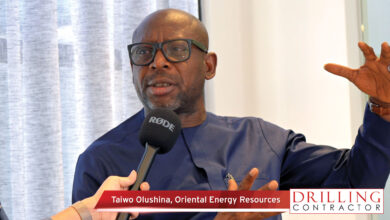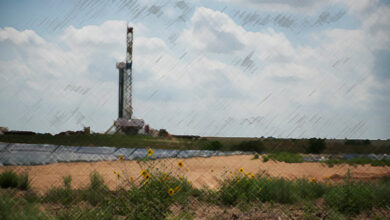IBP: Brazil is ‘on the right track’ with changes to local content, tax regimes, environmental licensing
Brazilian organization says it will continue to fight ‘punitive’ approach to local content, engage with IBAMA to achieve clarity on environmental licensing time lines
By Linda Hsieh, Managing Editor

It might be an understatement to say that the Brazilian oil and gas industry is in a state of flux. With the double whammy of a global oil price collapse and a corruption scandal that brought its national oil company to the brink of meltdown, Brazil looked like it was headed for some deeply troubling times.
However, the tide appears to be turning rapidly, with changes under way that are paving a path to recovery. DC recently met with Milton Costa Filho, Secretary-General of the Brazilian Institute for Oil, Gas and Biofuels (IBP), to discuss critical changes that are happening with local content requirements, tax laws and environmental licensing. Such changes are leading to what Mr Costa calls “cautious optimism” within the local industry.
Perhaps the biggest change that has taken place in Brazil over the past year has been the impeachment of then-President Dilma Rousseff in August 2016. This made room for President Michel Temer and what many perceive to be his more business-friendly policies. By October of the same year, Brazil’s Congress had voted to open up its pre-salt fields to foreign operators. This signaled a key policy shift for the country, which had previously required Petrobras to operate all pre-salt fields with at least a 30% stake.
The pre-salt fields have always been attractive for foreign investors, Mr Costa said, but he believes they have become even more appealing now that oil prices have fallen so significantly. “When the oil price was more than $100/bbl, oil companies were looking for volume,” he explained. The cost per barrel didn’t matter so much, because extra costs could be absorbed by the high oil price.
“Nowadays, with the low oil price environment, it’s not volume but quality of asset that matters. And one of the very few places in the world where you can find quality assets is in the pre-salt. I think it will be a decision factor for many of the big oil companies to participate in the coming bid rounds for pre-salt.”
Four bid rounds have been announced for 2017. The first, scheduled for May, will be for marginal onshore fields. This will be followed by the 14th bid round for oil and gas concessions and the second pre-salt bid round, which will be for unitized areas. Finally, the third pre-salt bid round was recently approved for November, which will be under the production-sharing regime.
Mr Costa said he recognizes that simply opening up the pre-salt to foreign operators will not attract significant bids. “There are many other issues like local content, tax regimes and environmental licensing that must be addressed… but I think we are on the right track.”
One step the government has taken is to reduce local content requirements for the upcoming 14th bid round. For offshore projects, 18% local content will be required for the exploration phase, 25% for the well construction phase, 40% for subsea equipment and 25% for platforms. For onshore projects, 50% local content will be required for both the exploration and development phases. As of early April, it appeared that these numbers will also be applied to the third pre-salt bid round.
“These changes are very welcomed by the industry, but we still need to improve,” Mr Costa said. In particular, IBP believes that the government should not take a punitive approach to local content as it does now, where fines are assessed against companies for not buying locally. Instead, incentives should be granted to companies for choosing to have more local content.
IBP is still in the process of engaging with the Brazilian Ministry of Mines and Energy on this issue, he said, as well as on attaining even lower local content requirements for 2018. Two bid rounds are currently being planned for next year, including the fourth pre-salt bid round.
In terms of tax regimes, REPETRO remains a key element of business plans in Brazil. The first phase of REPETRO, which exempts the E&P industry from several CAPEX-related taxes, ends in 2020.
“In order to take any investment decisions, companies must know if there will be REPETRO in the coming years,” Mr Costa said. “Four years in the oil business is a very short term,” particularly considering the length of time required to explore and develop complex pre-salt resources.
“The government has promised to extend this until 2040, so we are now negotiating the conditions of this extension.” An official announcement from the government is imminent in the coming weeks, Mr Costa said in late March. “We’re trying to show the government that it’s extremely important to extend REPETRO in order to attract more investment to Brazil… This is critical for companies to take the decision of attending the next bidding rounds or not. With REPETRO, we are going to be much more competitive.”
IBP and the Brazilian industry are also working to fight off two new taxes, proposed by the state of Rio de Janeiro, that Mr Costa said would have “considerable impact on the economics of the business.”
An injunction against these two state laws has been instated, but the final decision rests with the Brazilian Supreme Court. “We are waiting for a decision from the Supreme Court in terms of the legitimacy of these taxes, which we consider are not really taxes.” The timing of when a decision will be announced is uncertain, however. “It’s really difficult to make predictions about the Supreme Court,” Mr Costa said.
Aside from local content and taxes, perhaps the most pressing issue for foreign operators in Brazil is the environmental licensing process.
“We need more visibility in terms of how long the environmental licensing process takes,” he said. Whether it’s six months, a year or two years, the rules of the process must be clear so that companies can plan their resources. “What’s happening now is there is no clear rule. Companies cannot wait for years without a license.”
However, changes are under way, Mr Costa asserted. In particular, IBP has been engaging with IBAMA, the Brazilian environmental agency, to help them understand how the E&P industry works and what its technical issues are. “We are also bringing experience from other countries. Having benchmarks is very important,” Mr Costa said. Further, IBP is engaging with the National Petroleum Agency (ANP) in this process because “before offering a block, the ideal situation is that this area is already approved by the environmental agency to be introduced in a bid round.”
Looking to the coming years, Mr Costa expressed his confidence in the health of the Brazilian E&P market. This will be driven by the presence of world-class assets in the country, as well as regulatory changes under way that will increase its competitiveness.
“We feel that this new government is doing a good job. It’s not easy to turn a big ship and very quickly change its direction, but they are making changes very quickly,” Mr Costa commented in late March. “President Temer took office in September of last year, so it’s only been seven months. In seven months, they’ve changed a lot. They’re trying to understand our problems and trying to help address those issues. That gives us optimism – cautious optimism.” DC
Click here to view a video interview with Milton Costa Filho.




